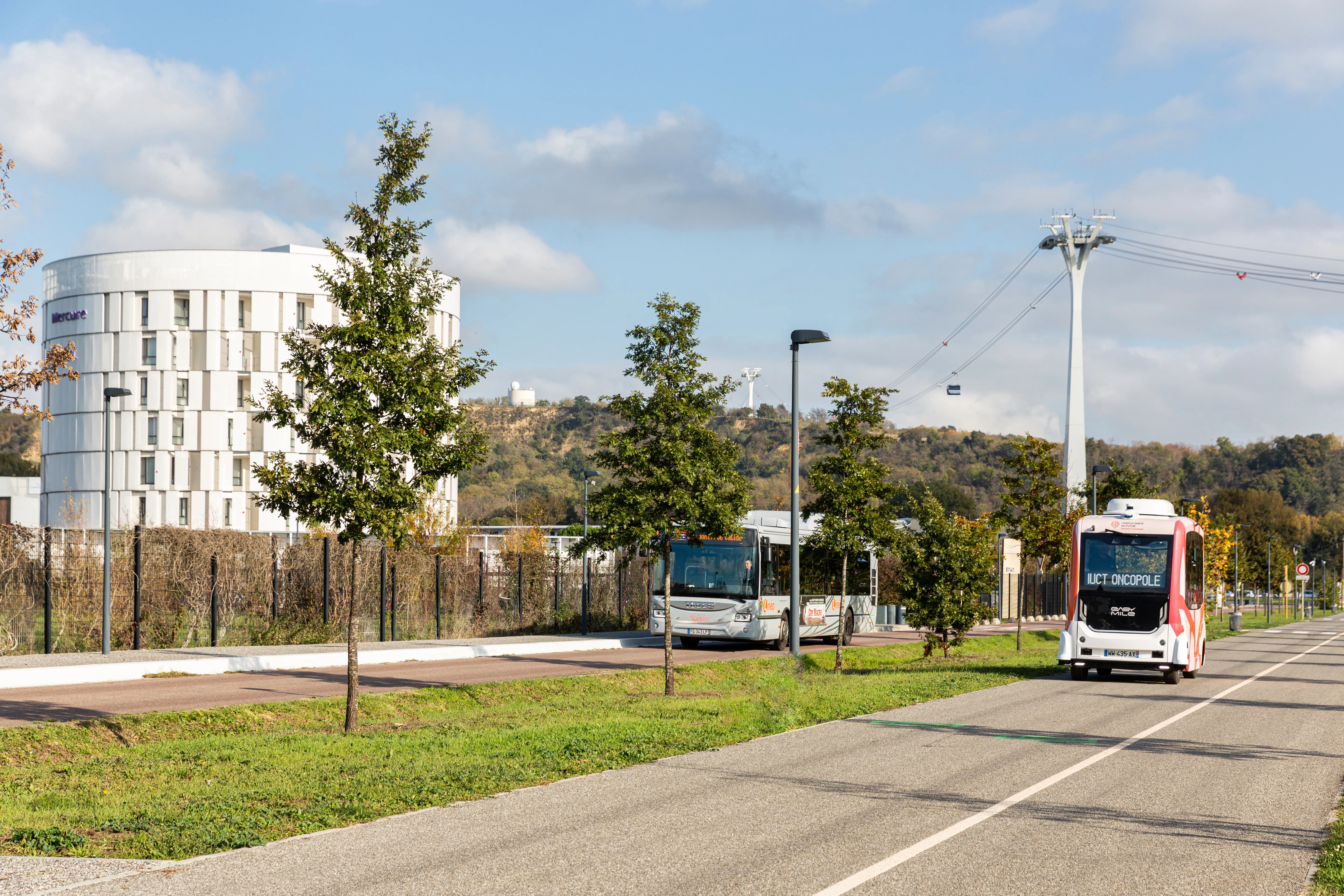French mobility solutions specialist Induct recently announced its first delivery of Navia, the self-driving electric shuttle developed under a partnership with Switzerland’s Ecole Polytechnique Fédérale de Lausanne (EPFL). According to Induct, Navia is the first automated electric shuttle offering an environment-friendly alternative to public transport and private cars in urban areas. The automated driverless electric vehicle carries up to eight passengers at a maximum speed of 20 km/h, and was designed t
February 12, 2013
Read time: 2 mins
French mobility solutions specialist 7149 Induct recently announced its first delivery of Navia, the self-driving electric shuttle developed under a partnership with Switzerland’s Ecole Polytechnique Fédérale de Lausanne (EPFL).
According to Induct, Navia is the first automated electric shuttle offering an environment-friendly alternative to public transport and private cars in urban areas. The automated driverless electric vehicle carries up to eight passengers at a maximum speed of 20 km/h, and was designed to complement conventional transport, public or private.
Navia is fitted with laser telemetry, GPS and sensors that detect the vehicle’s acceleration (accelerometers) and its rotation (gyroscopes) around all three axes (to and fro, side to side, up and down), enabling it to instantly calculate its position, route and distance travelled, in real time, enabling it to carry its passengers in complete safety and take them where they want to go without fuss.
Induct says Navia is ideal for those environments that need a simple, safe and environment-friendly mobility solution: pedestrianised city centres, large industrial sites, airports, theme parks.
Philippe Vollichard, deputy to the EPFL vice-president for planning and logistics, explains, "Our collaboration with Induct enables us to make effective progress on our scientific research work on induction charging and artificial intelligence, not only in the laboratory, but also outdoors. This project fits in the development of our Innovation Square, where we welcome many start-ups to our Scientific Park. We are delighted to take part in the project since, within the framework of its mobility plan, EPFL is exploring the most innovative public transport solutions for the first and last kilometer. Following a public tender procedure launched in 2011, EPFL identified the solution put forward by Induct and means to contribute to that concept's validation with the competent authorities. The school hopes to be able to deploy this technology on a large scale."
According to Induct, Navia is the first automated electric shuttle offering an environment-friendly alternative to public transport and private cars in urban areas. The automated driverless electric vehicle carries up to eight passengers at a maximum speed of 20 km/h, and was designed to complement conventional transport, public or private.
Navia is fitted with laser telemetry, GPS and sensors that detect the vehicle’s acceleration (accelerometers) and its rotation (gyroscopes) around all three axes (to and fro, side to side, up and down), enabling it to instantly calculate its position, route and distance travelled, in real time, enabling it to carry its passengers in complete safety and take them where they want to go without fuss.
Induct says Navia is ideal for those environments that need a simple, safe and environment-friendly mobility solution: pedestrianised city centres, large industrial sites, airports, theme parks.
Philippe Vollichard, deputy to the EPFL vice-president for planning and logistics, explains, "Our collaboration with Induct enables us to make effective progress on our scientific research work on induction charging and artificial intelligence, not only in the laboratory, but also outdoors. This project fits in the development of our Innovation Square, where we welcome many start-ups to our Scientific Park. We are delighted to take part in the project since, within the framework of its mobility plan, EPFL is exploring the most innovative public transport solutions for the first and last kilometer. Following a public tender procedure launched in 2011, EPFL identified the solution put forward by Induct and means to contribute to that concept's validation with the competent authorities. The school hopes to be able to deploy this technology on a large scale."







